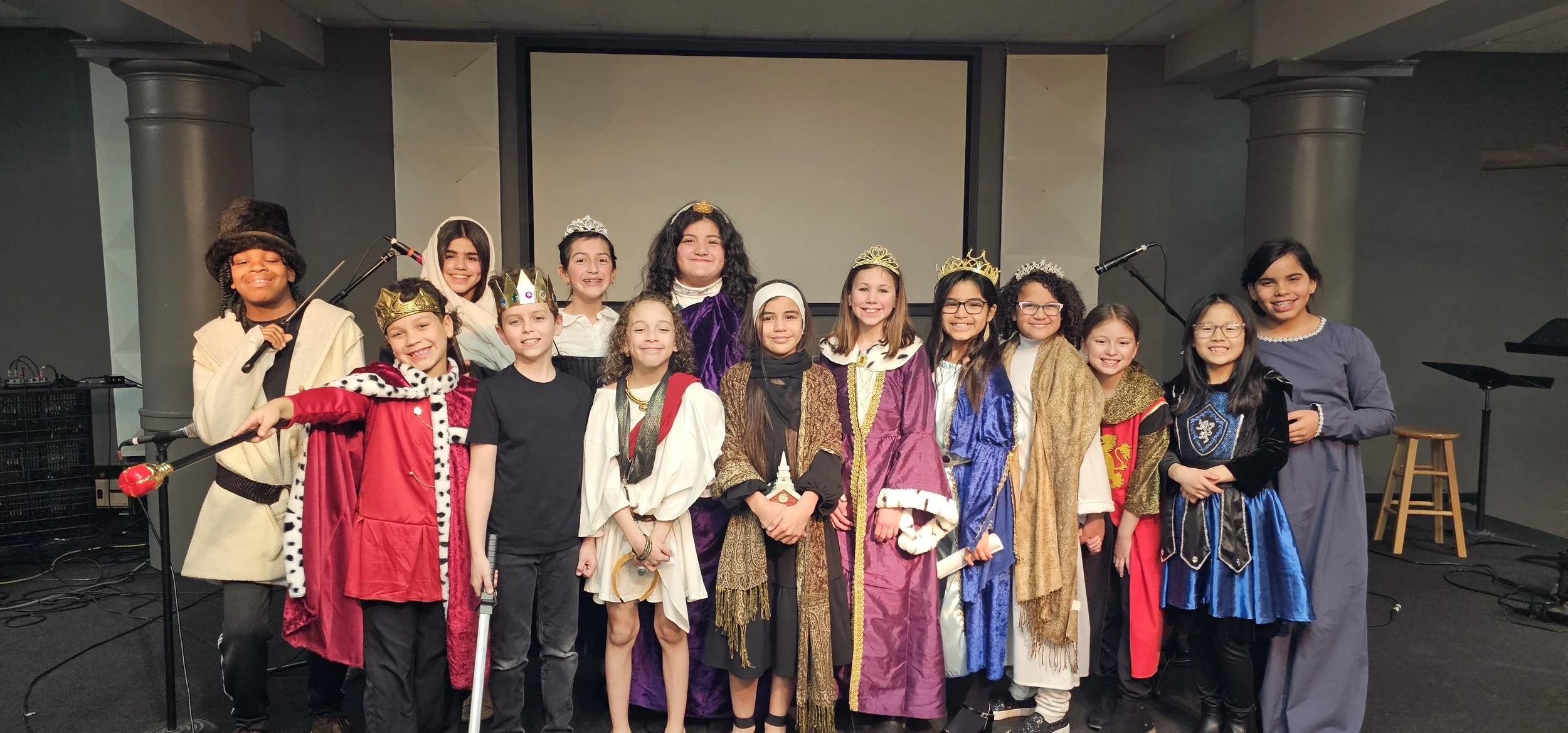
At Veritas Academy, we incorporate classical methods of teaching that coincide with children’s learning stages as their minds develop.
The classical educational approach is concerned not only with what is taught to a student, but also with how and when it is taught.
The “HOW” of Classical Education focuses on our curriculum, integration and teaching methods.
Each subject is taught using the Trivium method of Grammar, Logic, and Rhetoric.
Horizontal integration progresses logically through subjects in advancing grades.
Students begin Latin in the first grade (Grammar 1) through memory work and continue through junior high (Logic)
and early high school years (Rhetoric).We use classical teaching methods such as “Embodied Learning” (experiential learning that involves the five senses), “Socratic Dialogue” (conversational teaching in which participants are forced to think crucially, yet independently to advance arguments involving logic and reason) and a “Schóle Approach” (restful learning involving contemplation and reflection).
We incorporate classical curriculum with a Christian worldview into each subject and grade level.
Registration for the 2026-27 school year is now open.
The “WHEN” of Classical Education is also called “The Trivium”
Grammar Years - Spent in absorbing facts, systematically laying the foundations for advanced study.
Logic Years - Students learn to think through arguments. They are less interested in facts than in asking “Why?” and begin to pay attention to cause & effect, to relationships between different fields of knowledge, and to the way facts fit together into a logical framework.
Rhetoric Years – Students learn to express themselves, learning to write and speak with force and originality.
Classical Incorporation
The “WHAT” of Classical Education has to do with the content of what we teach and our approach of classical incorporation.
1. Trivium:
Classical Education historically focuses on teaching based on a student’s learning abilities as he grows. During the Grammar years, memorization comes easily, so students memorize facts, figures, dates through songs, poems and actions. During the Logic stage, students learn to integrate the knowledge they memorized in Grammar, beginning to articulate it in debate. Rhetoric students broaden their knowledge, focusing on persuasively expressing themselves well.
2. Vertical Integration:
All grades study a specific time period of History, reinforced through literature selections and writing assignments coven through out the year.
3. Horizontal Integration:
As students advance through the trivium, the curriculum progresses logically with a four-year pattern starting in GI and repeating three times throughout their classical journey. This allows students to follow a historical, literary and scientific sequence, each time going more in depth and building the trivium progression from creation to modern day.
History: Students progress through the history timeline three times:
Ancient – Medieval - Early American and World - Modern American and World. In addition Logic II and Logic III learn the countries of the world, the US states and capitals and the major world features.English: Students read works from and about their historical time period; their writing assignments also focus on their time period. Additionally, students study our own English Grammar from Grammar II through Logic I.
Science: Students progress through Life Science, Physical Science, and Earth Science in Grammar I - Logic I:
Human Anatomy, Zoology, Chemistry and Physics, Astronomy, Botany and Earth Science. In Logic II-III students study General Science and Physical Science. In the Rhetoric years, students examine Biology, Physics and Chemistry.Rhetoric: Rhetoric as a subject is the art of persuasion. Our Logic and Rhetoric students progress through studies of Informal Logic, Formal Logic, Speech, Debate, Worldviews & World Religions, and Apologetics.
For Rhetoric students, many of the classes are offered with Honors and AP options.
4. Latin:
Students begin Latin in Grammar I through memory work and continue with Latin classes in Logic and early Rhetoric years. Latin gives students the foundation of the structure and interpretation of language, which can advance them in English, problem solving skills, and science and legal terminology. Students can then apply what they have learned towards any of the Romance Languages. The Latin language also gives them a strong foundation for other languages, as well as a boost for college-level testing like SAT or ACT.
5. Classical Curriculum and Christian worldview:
At Veritas Academy, we strive to use classical texts, curriculum, and methods to give our students a strong academic foundation and love of learning. We carefully choose our curriculum to stay consistent to a God–created universe and Christian worldview as our lens for viewing and learning about our world and everything in it.



